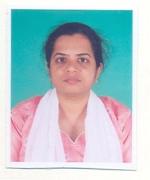
Jaya Iyer
- Born inIndia
- Studied inIndia
- Lives inIndonesia
Interview
From EWM Newsletter no. 17 (2010/2)
Jaya Iyer had her education (BSc, MSc) in Mumbai. She then enrolled at the University of Mumbai to obtain her PhD in mathematics and worked with Professor S. Ramanan at the Tata Institute, Mumbai in Algebraic Geometry. She did postdoctoral studies at the University of Paris6, University of Essen, MaxPlanck Institute, Bonn (19992003), and spent a year at IAS, Princeton (200607).
She has been at the Institute for Mathematical Sciences, Chennai since 2003, and currently is at the University of Hyderabad. Her current research interests are in Algebraic cycles, Moduli spaces and the ChernSimons theory.
EWM: When and why did you decide to follow a career in Mathematics? Are you aware of a significant number of women in your country working in modern fields of Mathematics?
JI: During my Masters course at IIT Mumbai, I was exposed to better teaching in mathematics and it induced a keen interest to study further. I also saw women Phd students working in various disciplines, and in general enjoying the work and extended student life. Also, my sister went to US to pursue Phd studies. All these factors influenced me to take up Phd studies. Today, I am more aware of the women working in advanced mathematics, perhaps because the number is still relatively small.
EWM: After graduating from the Bachelor/Master program in India, the family usually requires a young woman to get married and devote a good part of her time to the future household, thus making difficult for a woman to pursue PhD studies. How was your case, did you get a lot of support from your family?
JI: Due to economic reasons and other issues, marriage was not considered in the early years. Though my family didn’t approve of the choices I made in my mathematical pursuit, eventually, after I landed up in a job at a Government Institute at Chennai, it pleased them.
EWM: Are there organizations for women in science (particularly in Mathematics) in India? Are women present in leading positions at well established universities there?
JI: There is an organization “Women in Science” associated to the Indian Academy of Sciences, Bangalore, but none in mathematics. In well established universities/institutes, women do well in their respective fields and reach senior positions, although I am not aware of anyone at a leading position viz. Head/Dean/ViceChancellor.
EWM: What did you expect from the ICWM and to what degree were your expectations achieved?
JI: Since ICWM was a two day meeting, I expected it to generate awareness and need for successful women mathematicians to come together, and inspire younger women students and other women who may not have had similar opportunities and circumstances. I feel this was fairly achieved. Maybe, future meetings could aim to create more mathematical interaction and programs as a follow-up action.
